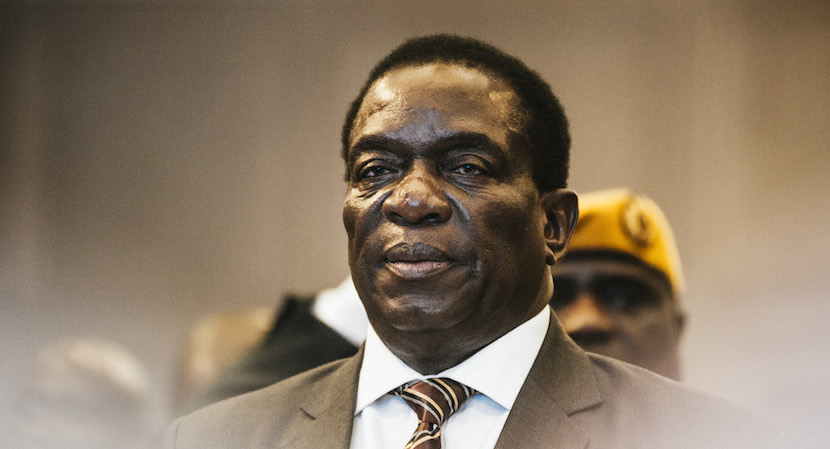THE majority of Zimbabweans would be happy to adopt the United States dollar or the Zimbabwe dollar as only currency and are adverse to the use of bond notes, according to a recent public opinion survey and released by Afrobarometer yesterday.
Currency reform has been a contentious issue since the Government adopted a multicurrency system in 2009.
The continued use of the bond notes is being viewed as adversely affecting the gains of economic recovery in the new dispensation given the liquidity crunch and escalating commodity prices.
According to the survey commissioned by the Mass Public Opinion Institute (MPOI), most people expressed a strong inclination for using the US dollar or Zimbabwe dollar rather than bond notes or the South African rand.
The US dollar, according to the report, drew the greatest popular support 50 percent, followed closely by the Zimbabwe dollar at 42 percent, in the nationally representative survey in April-May by the MPOI.
"Asked which currency their country should use, Zimbabweans prefer the US dollar (50 percent) or the Zimbabwe dollar (42 percent)," read the report.
"Fewer than one in 10 would opt for the South African rand (5 percent) or for continued use of bond notes (2 percent)."
The report stated that the US dollar was most popular among urban, younger, and better-educated citizens, while the Zimbabwe dollar won among rural, older, and less-educated respondents.
"Significantly more urban (59 percent) than rural (45 percent) respondents prefer using the US dollar, but preferences are reversed with respect to the local currency," said the report.
"More rural (47 percent) than urban (33 percent) residents prefer using the Zimbabwe dollar. The preference for the indigenous currency increases with age."
The report went on, "While only 36 percent of the youth say they want the Zimbabwe dollar back, this proportion rises to 45 percent among the middle - aged and to 54 percent among the senior generation. On the other hand, the preference for the US dollar declines with age, from 56 percent among the youth to 41 percent among the elders."
According to the report the Zimbabwe dollar was least popular among those with post-secondary education (33 percent), compared to 53 percent among those with primary education. However, the inclination for using the South African rand was significantly stronger among residents of Bulawayo (14 percent) and Matabeleland South (13 percent), near South Africa. However, with newly appointed Finance and Economic Development Minister Mthuli Ncube, hopes are high for economic recovery.
The Minister is keen on scrapping bond notes and revert to use of the United States dollar in the meantime while working towards restoring the local currency. In his article on how to awaken Zimbabwe's economic recovery, Minister Ncube, recommends that President Mnangagwa's administration should review and suspend use of bond notes if the economic recovery process is to make momentous success.
"I was one of the people who were of the idea that Zimbabwe should adopt the rand and join the Rand Monetary Union for a 7 to 10-year period," he stated. "This is because South Africa accounts for 80 percent of Zimbabwe's trade. So, clearly you want a currency that is linked to your largest trading partner."
The Minister argued that bond notes currency should be removed because it was becoming a surrogate currency to the Zimbabwean dollar without the macro-economic credibility to support it.
"The bond note currency is bad money and we know that in economics, bad money drives out good money," he said. "It's not surprising that the US dollar is now in short supply because people are not banking them. So the immediate course of action is to remove the bond notes and then let the US dollar become the core currency but over time we have to bring back the Zimbabwe domestic currency."
Afrobarometer conducts face-to-face interviews in the language of the respondent's choice with nationally representative samples.
MPOI interviewed 2 400 adult citizens between April 28 and May 13, 2018 in all 10 provinces of Zimbabwe. A sample of this size yields country-level results with a margin of error of +/-2 percentage points at a 95 percent confidence level.
- chronicle
 OK Zimbabwe posts US$17,8 million loss
OK Zimbabwe posts US$17,8 million loss  Hichilema meets Chivayo
Hichilema meets Chivayo  Millions celebrate Diwali festival in India
Millions celebrate Diwali festival in India  Econet Zimbabwe to delist from ZSE
Econet Zimbabwe to delist from ZSE  Gold edges up as traders await guidance
Gold edges up as traders await guidance  Mnangagwa fires Chitando, appoints Polite Kambamura
Mnangagwa fires Chitando, appoints Polite Kambamura  Young Investment Professional (YIP) Graduate Programme 2019
Young Investment Professional (YIP) Graduate Programme 2019 











 Young Investment Professional (YIP) Graduate Programme 2019
Young Investment Professional (YIP) Graduate Programme 2019
Editor's Pick